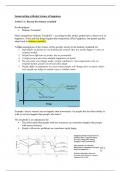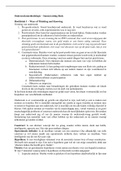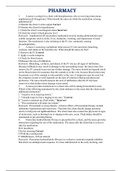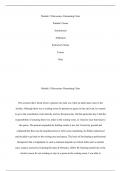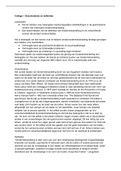Summary
Samenvatting artikelen Science of Happiness (2024)
- Course
- Institution
Samenvatting van artikelen Science of Happiness (2024). Week 1, week 2, week 3, week 5, week 6 en week 7. LET OP: dus niet week 4 en 8 Inbegrepen artikelen: Week 1: -Diener, E., Lucas, R.E., & Napa Scollon, C. (2006). Beyond the hedonic treadmill: Revising the adaptation theory of well-bei...
[Show more]
